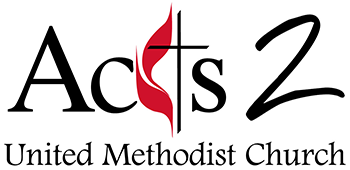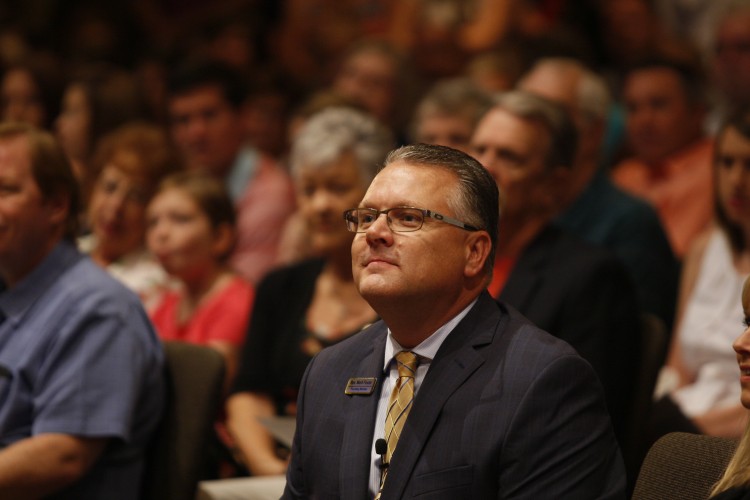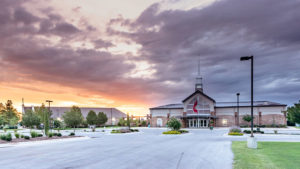“Forgive as quickly and completely as the Master forgave you” (Colossians 3).
People who have hurt each other have two options: They can approach one another to attempt reconciliation, or they can avoid each other. That’s it. Edmond is not that big of a town. The law of the family reunion is we can always count on seeing the one person we don’t want to see. As a church family, we trade “getting even” for “getting along.” Perhaps you have even seen this wisdom on a forgiveness meme:
The first to apologize is the bravest.
The first to forgive is the strongest.
And the first to forget is the happiest.
While true, I prefer this one: “Sometimes the first step to forgiveness is understanding the other person is an idiot!” Both have some truth in them. The best definition and the biblical definition of forgiveness is “to untie.” Forgiveness sets us free. Holding grudges poisons our soul.
The major fear with forgiveness is that forgiveness invites repeated offense. “Let’s not be stupid about this,” we say or “what if the other person is not sorry?” or “what if the ‘forgivers’ are really manipulators weaving sticky webs of obligation around those they ‘forgive’ to continue their bad behavior?” These are real life issues and questions deserving our best thoughtful and prayerful response.
First, real forgiveness does not come about easily. It takes effort, intentionality, bravery and goes against the prevailing culture. In the real world, many of us continue to live near those who hurt us. Many others have moved across the country from those they injured. Still, some retaliate against those who harm them.
We, as followers of Jesus, are called to something better–something higher than avoidance, hiding or harming. Jesus taught his disciples and us to pray, “Forgive us our debts, as we also have forgiven our debtors.” You may know that part. The part many of us would like to forget follows, “For if you forgive others their trespasses, your heavenly Father will also forgive you; but if you do not forgive others, neither will your Father forgive your trespasses” (Matthew 6:14-15). Did you catch this? We are forgiven only if we forgive others. This raises the stakes, doesn’t it? This is important stuff. This is life and death and future life or death forever kind of stuff. We need to learn how to do it. Do it! And then, share with others how to do it.
Beverly Flannigan in her book, Forgiving the Unforgivable, writes of barriers to forgiveness and of ways to become a more forgiving society. A common first barrier is “Making a Private Wound a Legal Matter.” Flannigan says,
“While many harmed interviewees were still in the grips of the moral damage and the unraveling of trust and love their injuries precipitated, they were counseled by the attorneys to do what is not natural after harm occurs. They were counseled not to talk about the injury with the injured. Attorneys fear that admission of wrongdoing or apologies can be later used as evidence in lawsuits between harmers and harmed. But it is the admission of wrongdoing and/or apology that also initiates the process of forgiving between two people. An apology is an invitation to discussion.”
Another barrier is “Bad Help.” One of the worst experiences is to have a professional helper, friend or family member dismiss our injury or minimize its importance. The only difference between major surgery and minor surgery is that “Major surgery is on me” and “Minor surgery is on you!” Equally bad is a “helper” to believe deeply the injury a person wants to forgive should never be forgiven. This is also devastating to someone trying to heal the wound in his or her soul. When people we love are hurt, it is difficult for those of us who love them not to feel their pain. I’m still a little mad at a boy who pushed my son Noah off a swing 12 years ago. Noah forgave him the same day. Like I said, forgiveness can be tough.
A final barrier of forgiveness in our society today is that we rarely see it. Not knowing how to forgive is a real problem. Flannigan says there are four elements to forgiveness:
1. Admitting wrongdoing
2. Apologizing
3. Making and keeping promises
4. Showing contrition when a person hurts someone
This is tough, lifetime work, friends. It took me more than 25 years to forgive and ask for forgiveness concerning childhood sexual trauma. It required faith, courage, lots of prayer and trained people of encouragement to set me free through the power of Jesus. But, I am free now and I believe I may have helped set some other people I love free in the process.
Here are four ways to promote forgiveness in your world:
1. Admit when you are wrong immediately and openly
2. Apologize to people you have wronged
3. Understand life is not fair. Envy and greed can never be the basis of non-forgiveness.
4. Show others you choose to forgive and move forward into the future, not the past, as the focus of your good God-given, God-forgiven life.
Forgiveness is a gift and power anyone can give. A poor person can forgive. A child can forgive. The elderly can forgive. Any race, age or socioeconomic grouping can bless another and return freedom to his or her life through the power of forgiveness. You can forgive. You can. (Philippians 4:13).
Every blessing from above brave ones,
Pastor Mark


